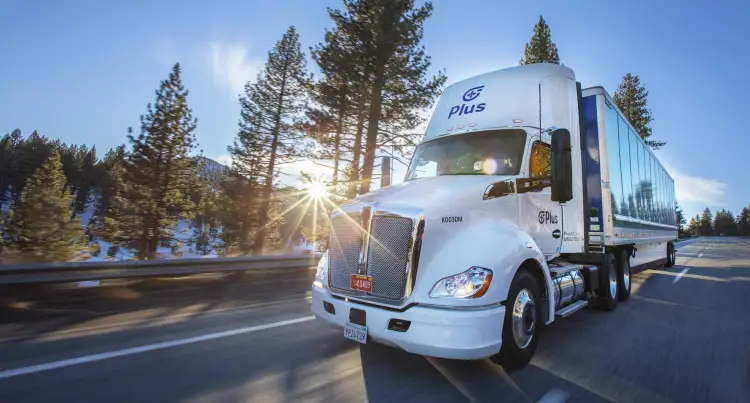The trucking industry, a cornerstone of global commerce, is on the cusp of significant transformation. Advances in technology, particularly automation, are reshaping the landscape of truck driver jobs. As the industry adapts to these changes, it’s essential for both current and aspiring truck drivers to understand how automation and other industry developments might impact their careers. Let’s explore the future of truck driver jobs, focusing on automation and the broader changes affecting the industry.
The Rise of Autonomous Trucks
Shaping the Future of Transportation
What does the future hold for autonomous trucks? Autonomous or self-driving trucks are at the forefront of industry innovation. These vehicles, equipped with advanced sensors, cameras, and artificial intelligence, are designed to operate with minimal human intervention.
- Technology Advancements: Companies are investing heavily in autonomous truck technology. Innovations in machine learning, computer vision, and robotics are driving the development of trucks that can navigate roads, follow traffic laws, and avoid obstacles with greater precision.
- Operational Efficiency: Autonomous trucks promise to enhance operational efficiency by reducing human error, optimizing routes, and lowering fuel consumption. This can lead to more cost-effective transportation solutions and increased productivity.
Impact on Truck Driver Employment
Adapting to Technological Changes
How will automation affect truck driver jobs? The rise of autonomous trucks raises questions about the future role of human drivers. While automation offers numerous benefits, it also presents challenges for those working in the industry.
- Job Displacement: Automation could lead to job displacement for some truck drivers, especially in long-haul routes where autonomous trucks are most viable. As trucks become more self-sufficient, the demand for traditional driving roles may decrease.
- New Opportunities: Conversely, the advent of autonomous technology creates new job opportunities in areas such as truck maintenance, software development, and fleet management. Drivers may also transition to roles involving oversight and monitoring of autonomous systems.
The Role of Human Drivers in an Automated World
Evolving Responsibilities
What roles will human drivers play in an increasingly automated industry? Even with the rise of autonomous trucks, human drivers will continue to play a crucial role in the industry.
- Oversight and Safety: Human drivers will likely be required to oversee autonomous systems, ensuring safe operation and intervening if necessary. This role involves monitoring technology, handling complex driving situations, and ensuring compliance with regulations.
- Last-Mile Delivery: While automation may excel in long-haul transportation, human drivers will remain essential for last-mile delivery. The final leg of the journey often involves navigating urban environments and making deliveries to specific locations, where human expertise is valuable.
Industry Changes and Adaptation
Navigating Evolving Trends
How are other industry changes impacting truck drivers? Beyond automation, several other trends are influencing the trucking industry, affecting job roles and requirements.
- Green Technology: There is a growing emphasis on environmentally friendly technologies, such as electric and hybrid trucks. These advancements aim to reduce the industry’s carbon footprint and offer new opportunities for drivers trained in operating and maintaining green vehicles.
- Regulatory Changes: Changes in regulations and safety standards can impact job requirements and training. Staying informed about industry regulations and adapting to new standards will be crucial for maintaining a successful career in trucking.
Skills and Training for the Future
Preparing for Industry Evolution
What skills will be essential for truck drivers in the future? As the industry evolves, drivers will need to develop new skills and adapt to changing technologies.
- Technical Proficiency: Familiarity with advanced truck systems and autonomous technology will become increasingly important. Drivers will need to understand how to interact with and troubleshoot sophisticated systems.
- Adaptability: The ability to adapt to new technologies and changing job requirements will be crucial. Ongoing training and professional development will help drivers stay competitive and succeed in a dynamic industry.
The Benefits of Automation for the Industry
Enhancing Efficiency and Safety
What are the potential benefits of automation for the trucking industry? Automation offers several advantages that could transform the industry and benefit businesses and consumers alike.
- Reduced Costs: Autonomous trucks can lead to cost savings through increased efficiency, lower fuel consumption, and reduced labor costs. This can result in more competitive pricing for transportation services.
- Improved Safety: Automation has the potential to enhance road safety by reducing human error, which is a leading cause of accidents. Advanced sensors and technology can help prevent collisions and improve overall driving conditions.
Challenges and Considerations
Addressing Potential Issues
What challenges does the industry face with the rise of automation? While automation offers many benefits, it also presents challenges that need to be addressed.
- Infrastructure Development: The successful integration of autonomous trucks requires the development of supporting infrastructure, such as smart roads and updated traffic management systems. Investment in infrastructure will be crucial for the widespread adoption of autonomous technology.
- Ethical and Regulatory Issues: The deployment of autonomous trucks raises ethical and regulatory questions, such as liability in case of accidents and compliance with safety standards. Addressing these issues will be essential for ensuring the responsible and effective use of automation.
Conclusion: Embracing the Future of Truck Driving
The future of truck driver jobs is being shaped by advances in automation and other industry changes. While automation presents challenges, it also offers opportunities for innovation and growth. As the industry evolves, truck drivers will need to adapt to new technologies, develop new skills, and embrace the changes ahead.
Let’s discuss: How do you feel about the impact of automation on the trucking industry? Are you currently exploring ways to adapt to these changes, or do you have specific concerns or questions about the future of truck driving? Share your thoughts or seek advice—let’s explore how you can navigate the evolving landscape of the trucking industry!
